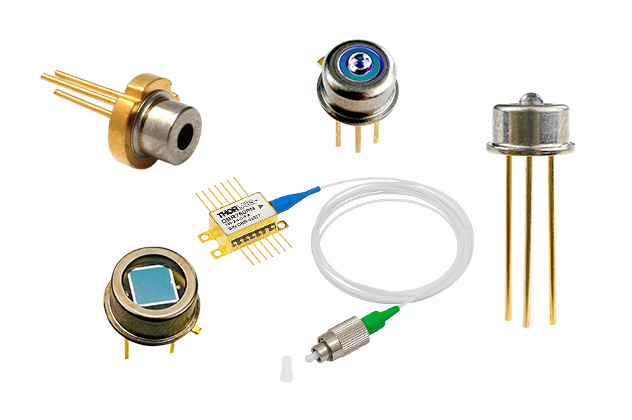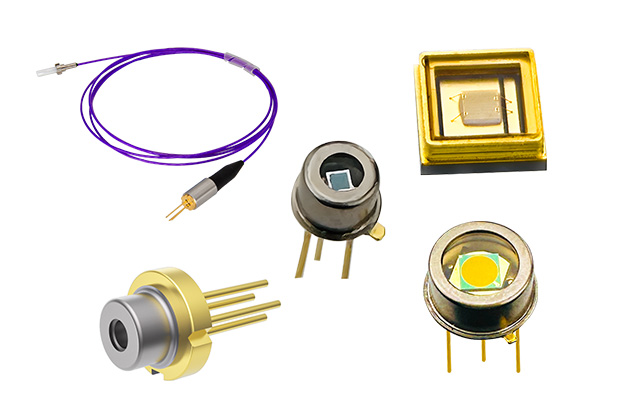概述
A silicon-based photodiode is a semiconductor optoelectronic device with single-crystal silicon as the substrate. Based on the internal photoelectric effect, when the PN junction is illuminated, photons excite electron-hole pairs, which are separated by the built-in electric field to form a photocurrent, realizing the conversion of optical signals to electrical signals. Its spectral response range covers 200-1100nm, and it has nanosecond-level response speed, low dark current noise characteristics, and a wide linear dynamic range, making it suitable for high-sensitivity photoelectric conversion scenarios.
With the advantages of high sensitivity, fast response, and low noise, silicon-based photodiodes are widely used in multiple fields. For example, in the optical receiving modules of optical communication systems, their high-speed response characteristics enable them to quickly convert extremely high-rate optical signals into electrical signals, ensuring efficient data transmission. Precision photoelectric measuring instruments use their high precision and low noise to achieve accurate detection of parameters such as light intensity and spectrum. In medical biosensing devices, high sensitivity is used to collect weak signals such as pulse oximetry and biological fluorescence. Environmental monitoring systems rely on them to detect the concentration of atmospheric pollutants. In industrial automation light control modules, fast response and stable performance enable object detection and position feedback.
展开全部





